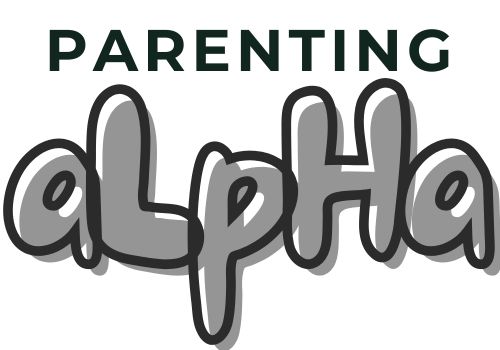We live in an era (digital age) where most of us, children included, prefer to engage with content through short video clips, podcasts, and audio snippets, instead of reading through written content.
The allure of brief content lies in its immediacy and accessibility. Short video clips, often shared on platforms like TikTok or Instagram, provide quick and visually stimulating bursts of information that cater to the fast-paced nature of modern life.
Podcasts and audio snippets, with their auditory appeal, offer a multitasking-friendly alternative. This allows users to absorb information while performing other activities.
The Reality of Digital Allure!

The rise of short video clips, podcasts, and audio snippets has reshaped the way information is consumed. The instant gratification provided by these mediums caters to the accelerated pace of modern life, which captures attention in bite-sized portions.
In this environment, the traditional act of sitting down with a book may seem at odds with the pace of digital engagement.
The allure of brief content is also supplemented by the noticeable short attention spans. People often find themselves navigating through a constant stream of information, and shorter content aligns well with the limited time and attention available.
The question then arises: Is reading still relevant for children in the digital age?
Furthermore, what lies in the future for those who choose to abandon the timeless practice of reading?
Should We Therefore Re-think the Role of Books?
The truth is, beyond being a mere leisurely pursuit, reading is very important. It holds the key to cognitive enrichment, expansive imagination, and a deeper understanding of the world.

1. Cognitive Benefits of Reading
Reading books provides a cognitive workout that is unparalleled. Decoding written words on a page, understanding complex sentences, and grasping complex ideas is known to stimulate cognitive functions.
This process enhances language skills, critical thinking, and problem-solving abilities. This can lay a robust foundation for academic success.
Reading builds a cognitive processing infrastructure that then “massively influences” every aspect of our thinking – particularly our crystallized intelligence—a person’s depth and breadth of general knowledge, vocabulary, and the ability to reason using
Scholastic
words and numbers.
The act of decoding written words on a page fosters language skills, critical thinking, and comprehension in ways distinct from interactive media.
The cognitive benefits associated with reading, especially in the formative years, cannot be easily replicated by digital counterparts.
2. Reading for the Mind and Empathy
Books, with their ability to transport readers to different worlds and perspectives, play a unique role in nurturing imagination and empathy.
Unlike screen-based experiences that often provide ready-made visuals, books encourage children to conjure mental images. This is good for creativity and a deeper understanding of diverse human experiences.
3. Reading Cultivates Patience Amidst Short Attention Span
In a world characterized by short attention spans, books provide an opportunity for children to develop patience and sustained focus. The immersive nature of a good book encourages them to invest time and effort in understanding a narrative over an extended period.
4. Reading for Imagination and Creativity
The immersive nature of a well-crafted story or informative text cannot be replicated by visual or auditory stimuli alone. Reading serves as a playground for the imagination.
Books, unlike many digital formats, require children to actively engage their imagination. The process of visualizing characters, settings, and scenarios based on written descriptions is great for creativity. This imaginative exercise not only enhances artistic abilities but also encourages innovative thinking. This is a skill that remains indispensable in navigating the complexities of the modern world.
5. Reading for Language Proficiency
One cannot overlook the impact of reading on language proficiency. While video and audio content provide auditory stimulation, they often lack the textual complexity that aids in expanding vocabulary and comprehension. Reading exposes children to diverse linguistic structures, and enhances their communication skills in ways that other mediums may fall short.
Exposure to well-written prose and varied genres contributes to linguistic development. A rich vocabulary not only aids in effective communication but also serves as a valuable asset in academic and professional pursuits.
What is the Fate of Those Who Skip Reading in the Digital Age?

As we peer into the future, inside the digital age, a scenario emerges for those who opt not to engage in the act of reading. The repercussions extend beyond a mere absence of a pleasurable pastime; rather, they touch upon various facets of personal development, societal participation, and professional success.
1. Limited Cognitive Development
Individuals who choose not to read may experience limitations in cognitive development. Reading provides a unique mental workout, fostering critical thinking, problem-solving, and linguistic abilities. Those who neglect this exercise may find themselves at a disadvantage when it comes to navigating complex challenges in both personal and professional arenas.
2. Narrowed Perspectives of Life
Reading exposes individuals to a multitude of perspectives, cultures, and experiences. For those who abstain, the world may appear narrower, with a limited understanding of diverse viewpoints. This can lead to a deficiency in empathy, and hinder effective communication and collaboration in an increasingly interconnected global society.
3. Professional Limitations
In many professions, strong reading and comprehension skills are essential. Those who neglect reading may find themselves ill-equipped to handle the demands of information-intensive careers. The ability to absorb, analyze, and synthesize information from written sources is often a key factor in professional success.
4. Limited Imagination and Creativity
Reading serves as a catalyst for imagination and creativity. Individuals who forego this source of inspiration may find their creative well running dry. The inability to envision possibilities and think outside conventional boundaries could hinder innovation and inventive problem-solving.
5. Communication Challenges
Reading contributes significantly to the development of verbal communication skills. Those who eschew reading may struggle with articulation, expressing ideas clearly, and using a diverse vocabulary. This could lead to challenges in effective communication, impacting personal relationships and professional interactions.
6. Reduced Educational Attainment
A lack of reading can have cascading effects on educational attainment. Academic success often hinges on the ability to absorb and interpret written information. Without strong reading skills, individuals may face challenges in academic pursuits, limiting their access to higher education and subsequent career opportunities.
7. Missed Opportunities for Personal Enrichment
Beyond the practical aspects, reading contributes to personal growth and enrichment. It offers avenues for self-discovery, emotional intelligence, and a deeper understanding of the human experience. Those who choose not to read may miss out on these transformative and fulfilling aspects of personal development.
8. Exclusion from Cultural Conversations
As literature and written content play a crucial role in shaping cultural conversations, those who abstain from reading may find themselves excluded from these dialogues. Being uninformed about current events, societal issues, and cultural trends could lead to a sense of detachment from the broader collective consciousness.
How to Balance Reading Culture in Harmony with Digital Age

As technology continues to redefine how we consume information, integrating the timeless practice of reading in the digital age is key in promoting a well-rounded and literate society.
Here are practical strategies to achieve harmony between a thriving reading culture and the ever-evolving digital age:
1. Integrative Multimodal Learning
When we acknowledge the prevalence of short attention spans in today’s youth, it becomes imperative to strike a balance. Rather than pitting reading against video and audio content, a harmonious approach involves integrating various modes of learning.
For example, platforms offering multimedia content with accompanying text provide a holistic learning experience.
2. Promote a Lifelong Love for Learning
While acknowledging the appeal of visually stimulating content, it is crucial to instill a love for reading from an early age. Encouraging children to explore the vast world of literature ensures that they develop a habit that can last a lifetime. This love for learning becomes a compass, that guides them through the ever-evolving landscape of information and knowledge.
3. Embracing a Rich Tradition
Reading has been an integral part of human civilization. It has shaped many minds and fostered creativity for centuries. Esteemed writers and inventors from the past, such as Mark Twain, J.K. Rowling, and Thomas Edison, extolled the virtues of reading as a foundational element for intellectual development. Their works stand as testaments to the transformative power of words on the human mind.
4. Build a Foundation for Critical Thinking
In a world inundated with rapid-fire information, the ability to critically evaluate content becomes paramount. Reading fosters this crucial skill by encouraging a slower, thoughtful engagement with ideas. Unlike the fleeting nature of video and audio content, a book or article invites the reader to pause, reflect, and develop a deeper understanding of the subject matter.
A Word for the Wise Child
As children immerse themselves deep in the realities of the digital age, let us not forget the power of words – as demonstrated through reading. These can shape minds, promote creativity, and inspire a love for learning.
It is essential to recognize that the merits of reading and the allure of audio-visual digital content can coexist harmoniously. Reading, with its rich tradition and proven benefits, remains important and can complement the digital evolution.





Leave a Reply